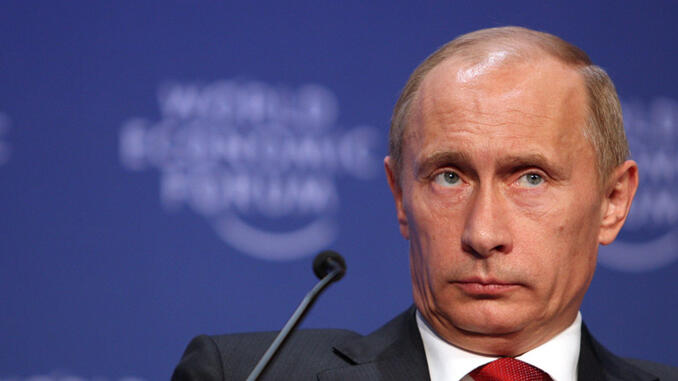
Donald Trump is putting a lot of faith into a working relationship with Vladimir Putin, and it has already been costing him dearly before any clear set goals have been announced. Trump’s remarks, often careless, have already strained his relationship with NATO, damaged his relationship with the intelligence community, and left many Americans concerned about how he views the world. Just this week Trump’s Nationally Security Adviser was given the boot over his close relations with Russian officials, and then lying to the Vice President about them. Both Republicans and Democrats are now calling for a fresh investigation into Trump’s relationship with Russia and Putin.
Despite Trump’s deep faith in supporting Putin, Trump needs to realize that Putin cannot be trusted. When Putin replaced Boris Yeltsin as Russian leader, there was great hope that the country would embrace a deeper free and democratic society. Instead, Russia under Putin’s leadership has been one of corruption and murder that resembles more a government controlled by mafia than a government controlled by the people.
With the spotlight back on Putin and Russia, it is important to review why Putin must not be trusted. This is why when former CIA Director and Secretary of Defense Robert Gates first met Putin he said, “I had looked into Putin’s eyes and I saw a stone-cold killer.”
Mikhail Khodorkovsky and Yukos
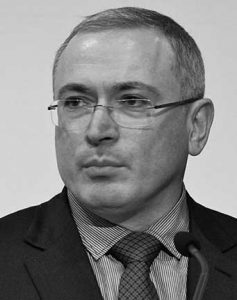
In October, 2003, Yukos owner and Russia’s richest man Mikhail Khodorkovsky was arrested for tax fraud. There are two dimensions to this story. One is silencing dissent by getting rid of a potential rival to Putin’s leadership. The other dimension is blatant nationalization of a strategic and wealthy private company.
Khodorkovsky imagined a free Russian society that embraced the free market and that was also progressively connected to the rest of the world. He angered Putin by criticizing the state owned Rosneft oil company and suggested it was no more than a kickback system for its executives to siphon money into their bank accounts—executives that worked for Putin’s government. What Khodorkovsky did not know was how deeply involved Putin was with Rosneft’s sketchy business deals. That however did not matter much to Putin. And it did not help that Khodorkovsky supported parliamentary candidates which shared his ideas. Putin feared Khodorkovsky and his influence would lead to a Duma that Putin no longer could control.
Soon, Yukos came under heavy government scrutiny and it was not long before Khodorkovsky found himself being arrest by FSB commandos as his private jet stopped for refueling on the way home from campaign events is Siberia. Putin kept him in jail for the next decade until he was confident his control of the country was secure.
Yukos itself was charged with evading $27 billion in taxes and the government seized 44 percent of its shares. The financial guts of Yukos, the production unit known as Yuganskneftegaz, was auctioned off to a business no one outside the Kremlin knew much of anything about. The organization had only registered as a company 13 days prior to the auction. The address of the mystery business was listed as a mobile phone shop that declared its capital at $359. And then just three days before the auction the company deposited $1.7 billion into its bank account. Losing its largest asset, Yukos was forced into bankruptcy.
In 2014, the Hague ruled that the Russian government deliberately bankrupted Yukos and jailed Mikhail Khodorkovsky to prevent him from entering politics.
Viktor Yushchenko
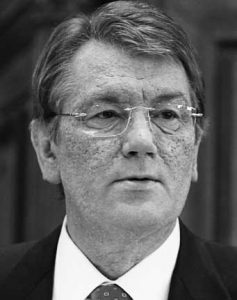
Viktor Yushchenko was a reasonably handsome man when he ran for President of Ukraine in 2004. Today, his face resembles very little of his former looks. His face is bloated and covered with deep pockmarks as if it were the surface of the moon. They are the scars from blackheads, cysts, and pustules caused by dioxin (a key toxin in Agent Orange) poisoning. The pain from the poisoning and subsequent treatments were so bad, a catheter was installed in his spine to deliver pain relief.
Yushchenko was widely viewed as a very pro-western politician. His wife was from Chicago. He wanted the Ukraine to become a member of the European Union and NATO. This, of course, was very unacceptable to Putin. Putin hit the campaign trail hard in support of Yushchenko’s pro-Russian opponent, Viktor Yanukovych. The election became a disaster and was universally criticized as being rigged with countless reports of ballot stuffing and voting from “dead souls.” With all the corruption, Yanukovych was deemed the winner but the election results were contested.
Putin had put his image on the line for Yanukovych and the results of the elections. However, the highest court in the Ukraine struck down the election results saying the election was “marred by systematic and massive violations.” A second runoff was held, and was even more closely scrutinized than the first round. Yushchenko won that election with 52 percent of the vote to Yanukovych’s 44 percent. The events of that that election were viewed in Russia with humiliation and the world would refer to the events as the “Orange Revolution” after the color the protestors adopted to protest the original election.
Yushchenko believes he ingested the dioxin in soup he ate at a dinner hosted by Volodymyr Satsyuk. He believes Satsyuk was the one to poison him. However, in 2005 Satsyuk moved to Russia and became a Russian citizen which protected him against any deportation if charges were ever filed. Officially the poisoning of Viktor Yushchenko is unsolved to this day. It is remembered as a case where a Putin critic mysteriously became sick by poisoning.
Anna Politkovskaya
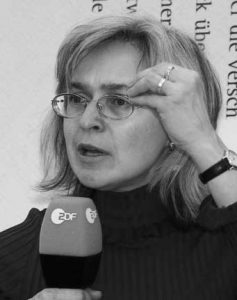
On October 7th, 2006, Anna Politkovskaya was fatally shot four times as she stood in an elevator in her apartment building. The gunman left the pistol by her body, a sign of a contract killing. It is often noted that her murder happened on Vladimir Putin’s birthday.
Politkovskaya was most famous for her work as an investigative reporter for the Novaya Gazeta and her books critical of Russia under Putin. She was very critical of the war in Chechnya and wrote about the abuses and war crimes committed by Russian forces and the Russian backed administration of Akhmad Kadyrov.
During her coverage of the Chechen war in 2001, she was detained by Russian soldiers while investigating war crimes. During her detention she was beaten, poisoned, and subjected to a mock execution before being released. Despite this incident, Politkovskaya continued her career about reporting
For someone as high profile as she was, Putin and the Kremlin stayed quiet about her death. Her murder was covered around the world, and because she was also a citizen of the United States (born in New York), US Ambassador to Russia William Burns officially demanded a full investigation of her murder. Even though there were arrests and people put in jail over the murder, the case is official unsolved. To this day no one actually knows who ordered Anna Politkovskaya’s death. But all signs seem to point that it was ordered from deep within the Kremlin.
Alexander Litvinenko
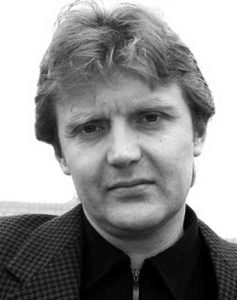
Litvinenko was a friend of Ann Politkovskaya and a former FSB agent. In 1998 he and other FSB officers openly accused their superiors of murdering Russian business tycoon Boris Berezovsky (another Putin critic). He was arrested for the incident but later the charges were dismissed, only for him to be re-arrested a second time and the charges yet again dismissed. He and his family then defected to the United Kingdom.
On October 19th, 2006, Litvinenko publicly declared that Putin himself was behind the murder of Anna Politkovskaya. Two weeks later he became seriously ill, and by November 23rd, he was dead.
He had been poisoned during a meeting with two Russian former KGB agents at a restaurant in London. The poison used was determined to be polonium-210, a rare radioactive element that was once used to trigger nuclear bombs. Russia also happens to produce 97 percent of the world’s industrial supply. Radioactive traces of the element could be traced on the men Litvinenko met with, and where they had been. Even the seat of the airplane from Russia one of the men had sat in had high levels of radiation from the polonium-210 used to poison Litvinenko. A British investigation into the murder determined that the assassination was state sponsored
There are other incidents and victims that have ties to Anna Politkovskaya like Natalia Estemirova (a fellow journalist who was abducted and executed), Stanislav Markelov and Anastasia Baburova (Markelov was Politkovskaya’s lawyer and was assassinated, Baburova was also shot and killed when she tried to save him). By far, Litvinenko’s death was the most dramatic.
Boris Nemtsov
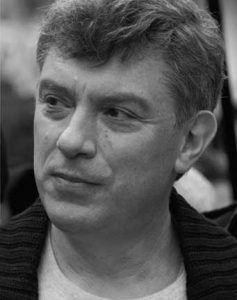
One of the prominent features of the Kremlin under Vladimir Putin, besides serious health issues and premature deaths, is the massive corruption. Mikhail Khodorkovsky, as mentioned above, was one of those who took notice of how many people in Putin’s government were mysteriously becoming rich through nefarious business dealings. A secret CIA study leaked to Steven Lee Myers, author of “The New Tsar: The Rise and Reign of Vladimir Putin,” estimated Putin’s personal wealth at an astonishing $40 billion. A shockingly breathtaking amount by any standard, even more so for someone who has worked in government for their whole life and was raised by a conscript in the Soviet Navy and a factory worker.
In 2008 Russia’s corruption was on display for all the world to see. Russians refer to the 2008 Winter Olympics in Sochi as the “Korumpiad.” The original cost of getting Sochi ready for the Olympics was put at $12 billion. The final amount put the actual cost at $50 billion. This includes a 25-kilometer highway to help travel to and from the town. The Wall Street Journal estimates that the highway cost around $200 million per kilometer, making it the most expensive highway in the world.
One of Putin’s loudest critics over the rampant corruption behind the Sochi Olympics was former politician Boris Nemtsov. Nemtsov had served in the Duma until 2003 and most recently had become very critical over the military situation in the Ukraine. Nemtsov was said to be preparing a report that proved the Russian military was involved in the Ukraine fighting. Vladimir Putin had publicly denied that the Russian military was involved, though later indeed he was shown to be lying.
Nemtsov had expressed that he was afraid that Putin would have him killed in the weeks before his death. His fears came true on the night of February 27th, 2015 when he was gunned down on a bridge within eyesight of the Kremlin. His murder garnered criticism from world leaders like President Obama and Chancellor Merkel.
Later this month on February, 26th, a memorial protest will be held in Moscow to commemorate Boris Nemtsov and his views and freedom of speech.
Vladimir Kara-Murza
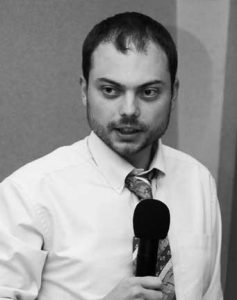
Vladimir Kara-Murza was a colleague of Boris Nemtsov and an open critic of Vladimir Putin. He is also a duel citizen of Russia and Britain whose family lives in Virginia. In 2003 Murza ran for a seat in the Duma. An unsuccessful attempt was made to throw him off the ballot and the election was marred by campaign tampering by his opponent. On election day vote rigging was obvious. Murza lost that race by a landslide. In more recent years he has been active in the Open Russia NGO which is strongly anti-Putin. The foundation calls for open elections, free press, and civil rights reforms.
On May 26th, 2015 Murza became ill with vomiting. He thought he was having heart problems and went to a cardiac clinic. There he was diagnosed with poisoning and taken to the hospital where his organs began to fail. He fell into a coma but later recovered.
Recently, Murza has suffered a reoccurrence of organ failure and lapsed into another coma. As of the time of this writing, he has awakened from his coma but his health is very tenuous. The doctors currently treating him agree that some sort of toxic substance is responsible for his failing health, though they have not as yet been able to identify the exact substance.
He maintains he is the victim of a politically motivated attack. He told CNN, “Frankly there is no other possible reason. I don’t have any money dealings. I don’t have any personal enemies. I didn’t steal anybody’s wife.”
